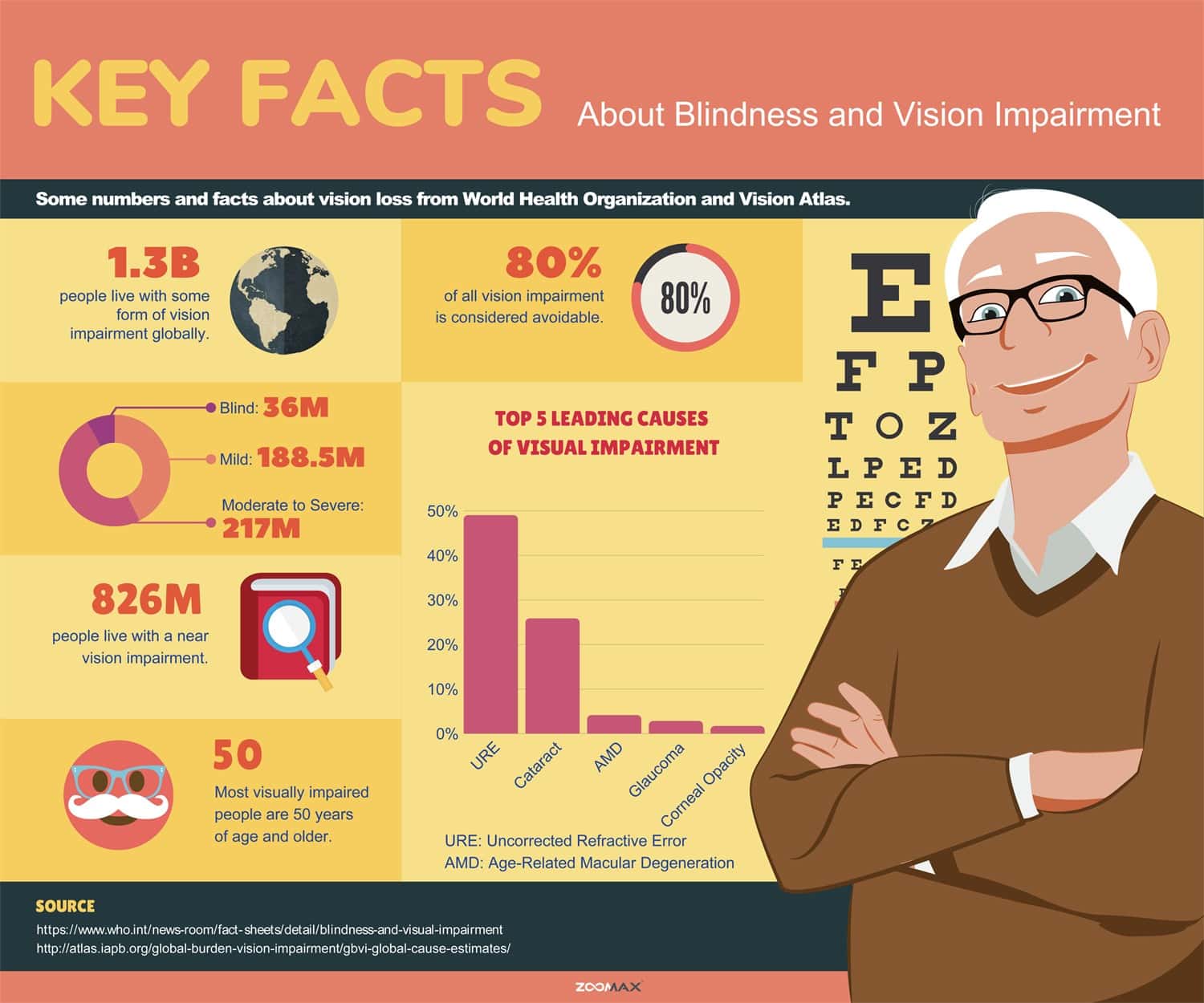President Lyndon B. Johnson signed a proclamation for Blind Americans Equality Day (originally called White Cane Safety Day) on October 15, 1964. The day was set aside to highlight the issues facing individuals with vision impairment and the resources available for support. According to the Cleveland Clinic, more than 60% of causes of congenital blindness (meaning being born blind) are caused by inherited eye diseases such as cataracts, glaucoma, and other eye malformations. Today let’s look at key facts about vision impairment, common etiquette tips, and local resources for individuals with vision impairment.

Source: Zoomax (https://www.zoomax.com/low-vision-information/facts-blindness-vision-impairment.html)
Ways to celebrate
- Think of potential barriers for individuals with vision impairment. Could you write to your mayor about broken sidewalks or lack of cuts in curbs?
- Visit your local senior center.
- Learn about the accomplishments of famous blind individuals.
Etiquette tips
- Always ask before offering assistance. NEVER grab a visually impaired person or their cane in an effort to guide them.
- Remember that guide dogs are there to do a job. Don’t distract them by trying to pet them or get their attention.
- Announce yourself if the person with visual impairments does not know you well and may not recognize your voice.
- Speak calmly and clearly if there is a barrier (e.g., “stop here for a second, there’s a pole in front of you.”)
- Visit the National Federation for the Blind’s website for additional etiquette tips.
Local resources
- Detroit Radio Information Services– A program of Wayne State University, this program offers a Radio Reading/Audio Information Service for people with disabilities. Specially built receivers are loaned free of charge to qualified applicants.
- Greater Detroit Agency for the Blind and Visually Impaired– Offers vision rehabilitation therapy, orientation and mobility therapy, community programs and education, and information and referral.
- Michigan Bureau of Services for Blind Persons (BSBP)– Provides training and other services to help blind or visually impaired persons achieve employment and independence. Provides counseling and training in skills for daily living without vision. Also provides an independent living program for adults age 55+ who are legally blind.
- Michigan Council of the Blind and Physically Disabled– Offers resources, provides forums, and has programming on MCBVI Radio.
- Visual Impairment Service Team– This program of the VA Ann Arbor Healthcare System allows veterans with low vision or blindness to consult the visual impairment services team for adaptive equipment and training. Support group and community activities are also available.
- Washtenaw Library for the Blind and Print Disabled– This free service administered by the Ann Arbor District Library, loans books, magazines, and videos in alternative formats to individuals of all ages who are unable to read or use standard printed materials as a result of temporary or permanent visual or physical limitations.






